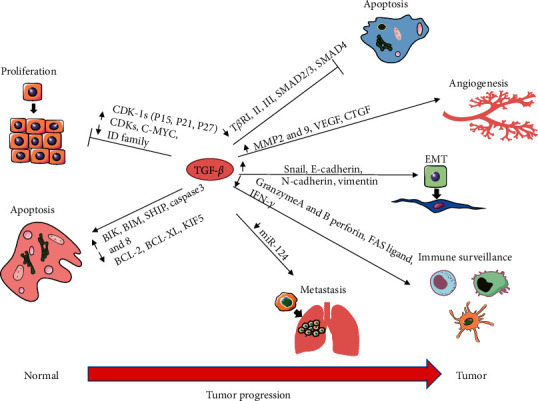Figure 2.

Dual effects of TGF-β on tumors. As a double-edged sword, TGF-β can promote and inhibit tumors through various mechanisms. TGF-β exerts its tumor inhibition mainly by inhibiting cell proliferation and inducing apoptosis. TGF-β can upregulate CDK-IS expression (P15, P21, and P27) to inhibit CDK and downregulate the expression of the C-MYC and ID family to inhibit cell proliferation. Simultaneously, TGF-β can also inhibit the expression of antiapoptotic genes such as BCL-X, BCL-2, and KIF5 and promote the expression of proapoptotic genes such as BIK, Caspase 3, and Caspase 8 to induce apoptosis and thus inhibit tumor growth. However, TGF-β can also promote cancer through several mechanisms. TGF-β can enhance EMT and metastasis to play its protumor role by upregulating Snail, E-cadherin, and N-cadherin or downregulating miR-124. It can also evade the immune system by inhibiting Granzyme AB, perforin, FAS ligands, and IFN-γ to achieve its tumor-promoting effects. TGF-β also triggers tumor growth by promoting angiogenesis by activating MMP2, MMP9, VEGF, and CTCT.
